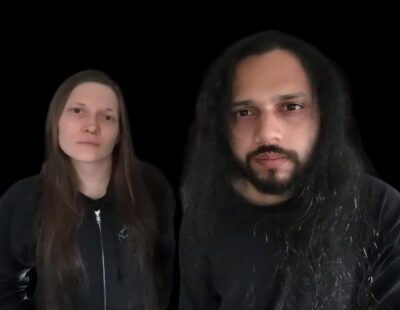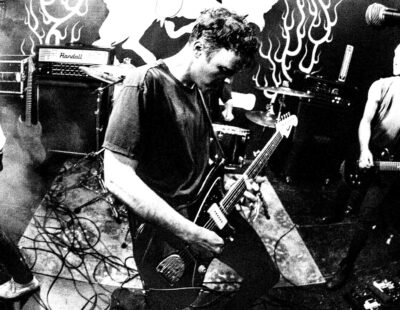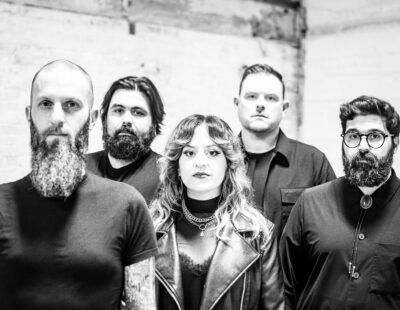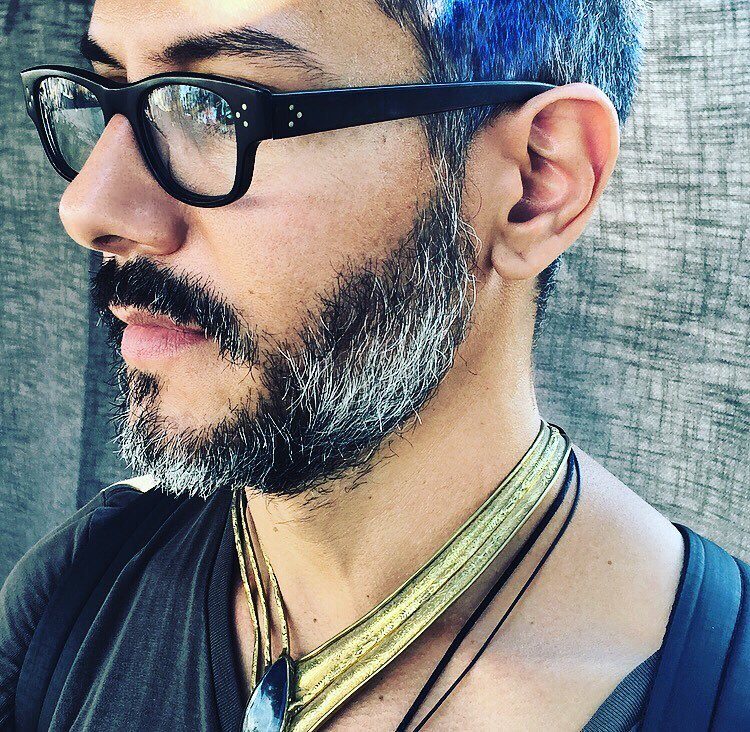
When Paul Masvidal and Sean Reinert announced they had formed post-rock scions Æon Spoke–many years after both Cynic and Portal–it wasn’t what many in metaldom had expected. True, as musicians, composers, and explorers Masvidal and Reinert have never been predictable, but Æon Spoke (also Aeon Spoke) had less to do with complexity than it did with simple economy. The group’s self-titled debut (2003) waved a high flag from a much different musical landscape. From singer/songwriters to dream pop aficionados, Æon Spoke, featuring Masvidal, Reinert, and Evo (E. van Orden), parlayed ethereal sentimentality against the bedrock of decidedly non-metal frameworks. Obviously, this was contra (and likely very misunderstood) by the Cynic’s fanbase, but it was nonetheless an honest and direct outpouring of where the musicians involved were at. Almost 10 years since the release of Focus had the principals grown, expanded, and diversified into Æon Spoke. Put into perspective, the advancement from 1990 to 1994 of Masvidal and Reinert was seismic alone.
Æon Spoke on Season of Mist is the reissue of 2006’s Æon Spoke on Steamhammer with noticeable differences. First, it’s been re-sequenced. This new flow feels natural and logical. Second, the mixing by Warren Riker (Down, Santana) and John Hiler (Slayer, Danzig) rockets the sometimes gossamer, always from-the-heart songs into the stratosphere. They sing from the speakers in the same way Jeff Buckley’s “Hallelujah” or Radiohead’s “No Surprises” cut to the emotional chase. Of course, the re-mastering by Jamie King (Between the Buried and Me, Canvas Solaris) is elevatory expression in and of itself. Songs like “Cavalry of Woe,” “Emmanuel,” “Silence,” and “Sand & Foam” display Æon Spoke’s ability to rock alternatively and deftly. Æon Spoke features contributions from Rex Brown (Pantera, Down, Cavalera Conspiracy), Academy Award-winning film and TV composer Paul Hepker (Tsotsi), R. Walt Vincent (Liz Phair, Pete Yorn), Evan Slamka (Marjorie Fair), Chris Tristram (House of Lords, Marjorie Fair), and Chris Kringel (Cynic, Portal).
Decibel catches up with Masvidal on what it means–a lot it turns out–for Æon Spoke’s music to be available yet again, and in delicately-updated form.
Tell me about the Æon Spoke (Aeon Spoke) re-release. In a way, it’s a re-send of a love letter to Sean Reinert. Why did it make sense to re-release the album now?
Paul Masvidal: It’s one of those gut feeling moments to move forward with a decision. And in many ways it holds a connection to Sean and all those years we spent focused on the project. In my grief, I needed to keep the record to myself–between Sean and myself in a way–to feel the intimacy of our friendship again from all those years, so I pulled it offline. The thought of reissuing the album had been floating around but it just suddenly made sense, although I also knew I had to rediscover it again and make sense of the work based on where I was now. I started to play the songs on acoustic guitar to feel them energetically, and throughout the process I dreamed a lot about the music, and also the surfacing of deep ancestral trauma and memories.
Both of those things–the memory of Sean and your own memories–have weighed heavily on your mind. Was there a starting point?
Paul Masvidal: I had one dream I’ll never forget; I woke up crying after having a dream Sean Reinert came back to life. We were interacting at a concer,t where he was going to play a gig with another band. We were hanging and talking but also both aware that he had died. It felt completely real like I was with Sean again, totally his energy, which held a complex range of emotions. I was on the floor of a backstage area removing my equipment from our combined flight cases (we used to share flight cases on tour). Then his mom and sister suddenly show up behind me and are just standing there. It was if they appeared to symbolically say, “He’s gone, Paul.” Then, I hugged his mother around the knees and began balling. Towards the end of the dream, I remember Sean speaking the letters “A-Y-T-W.” When I woke up I realized that it’s the acronym for the last song we recorded before reforming Cynic. It’s titled “Are You the Winter,” so I searched for that title in the subject line of my emails and a blank email to Sean came up from 2006 where only the MP3 was attached I had completely forgotten about this song when going through the archival material. It was if Sean led me to it. There’s many other layers related to the dream involving numerology and the lyrics to the song I won’t get into, but in short it was an extremely powerful, archetypal moment. It was then that I knew for sure it was OK to move forward with Æon Spoke again.

It’s been 15 years since the release of Æon Spoke on Steamhammer. Musically, this is quite different from Cynic, but there’s a thread through it that feels familiar what Portal were up to. What does the music that you wrote all those years ago say to you today?
Paul Masvidal: Listening back to the songs and dozens of others we never released reminded me of what a prolific time that was for me as a songwriter. I feel like this collection is some of the best songs I’ve ever written. The melodies are beautiful and they tap into influences I don’t normally get to show in Cynic. This material at its core is my musical aesthetic from early childhood. My attempt at telling the truth with very little ornamentation. Much like the solo acoustic work, Mythical Human Vessel. I remember going to great lengths to capture vocal performances that felt honest and real. Nothing hidden. Brutal and gentle truth at once.
What were some of types of music informing Æon Spoke? I obviously hear the jangle pop and shoegaze here, but there’s also something more modern in it. Like a gentler My Vitriol or Rival Schools. Radiohead is in there, too. A bit of millennium zeitgeist.
Paul Masvidal: Yes, all those elements and influences are at play. Also artists from early childhood like Bread, Simon & Garfunkel, Cat Stevens, Harry Nilsson, The Beatles, and Neil Young. Gotta toss in Elliott Smith, Sparklehorse, Jon Brion, Jellyfish, Failure, Hope Sandoval and Mazzy Star, Eels, Mercury Rev, Blonde Redhead, My Bloody Valentine, Joseph Arthur, Wilco, and local bands that were part of the same Los Angeles scene at this time like Marjorie Fair, Gliss, Autolux, The Autumns, and Earlimart.
Sonically, what instruction did you give Warren [Riker] to re-mix the release? I know he was your audio guru on Ascension Codes, which was a masterful display of bombast and restraint.
Paul Masvidal: Warren mixed the original 10 tracks and John Hiler mixed three. I solely re-mastered this material and worked closely over the past nine months with Jamie King who brought out more depth, clarity and details. It feels like a fresh coat of paint in a way. I also did subtle updates to the original segue pieces which were left out of the Steamhammer release. One of the bigger changes here is the re-sequencing of the tracks as well, which I owe credit to a couple friends, Sebastian and Jeremy for providing objective voices on the album flow.
I know you’ve said these are some of your favorite songs. What in particular excites you now that you have the benefit of hindsight?
Paul Masvidal: The melodies, lyrics and arrangements. There’s just the right amount of attention to detail without overdoing it. The performances capture something pure and real, and they tell the truth. I like songs that capture a raw open heart, and I can hear it in this material.
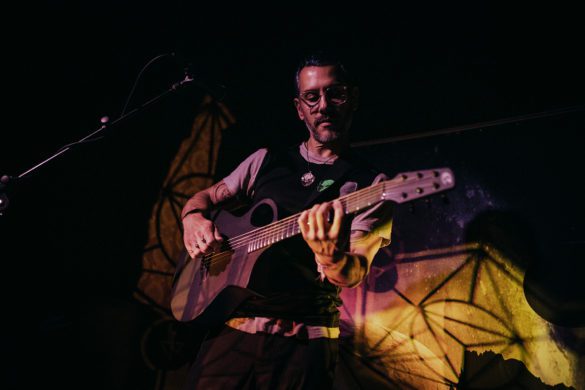
How do you view the bonus tracks in context of the original album? Complementary or something entirely different?
Paul Masvidal: The bonus tracks are from the original self-released Above the Buried Cry. I removed them from the Steamhammer release for the sake of brevity, but when I started listening back I felt that they should be part of this collection to tell the whole story of these two albums. I have an archive of dozens of tracks I will be issuing in the months ahead, probably as EPs to break down the timeline and history of Æon Spoke. It’s interesting to notice how a bunch of the songs were curiously connected to the evolution of Cynic.
Lyrically, this is very heavy. What were you observing or going through while writing?
Paul Masvidal: I’m excavating childhood trauma and how that’s informed my relationships as an adult. I’m still doing that. This type of self-inquiry can be quite subtle to notice and write about but I’ve always found it easier to process more subtle and complex emotional states through song. I think it comes from having kept journals since early childhood. It’s more of a ‘human stories’ approach to lyrics as opposed to Cynic, which feels more like an extraterrestrial channeling through me like an observer.
The cover art has been re-positioned too. Perhaps this is another angle to Æon Spoke. The phoenix rebirth by zooming in on the image from the inside sleeve of the original. Maybe I’m reading too much into the intent here.
Paul Masvidal: Yes, this is the original full painting. I wanted to get to the root of the work and give birth to the full image. The red phoenix reassembling itself in all its glory. My dear friend Zu (Richard Blanchard) painted it, and I’m grateful that it’s now released as it was originally intended.
Paul Masvidal: My friend Radek from Poland appeared at the eleventh hour and gave it a visual update with some tools only someone like and other video related geeks would know about. In essence he upscaled it to 1280 and filled the image. It was always meant to look grainy and vintage, but it now has a more legit modernized aesthetic plus it contains the updated audio track.
Æon Spoke has a digital release. Vinyl will follow later in 2022. Can fans expect other formats as well?
Paul Masvidal: Yes, vinyl coming possibly by year’s end. I’m not sure if Season of Mist will do CD or cassette as well, but I would love that. The album will be on all the usual streaming outlets next month. And then there’s the release of the demos and rarities, which will likely appear as a series of EPs in the coming months as well.
** The reissue of Æon Spoke’s self-titled 2006 album is out June 10th digitally through Season of Mist. Order or listen on Bandcamp (HERE). Dare to dream…
** Other Paul Masvidal-related links:
— Cynic
— Paul Masvidal
— Mythical Human Vessel
— Masvidalien Art




